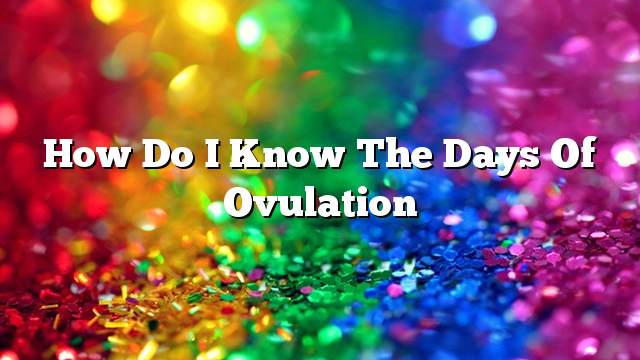ovulation
Ovulation is one of the stages of the menstrual cycle in which an egg is removed from the ovary of the woman to settle in the fallopian tube, which makes it eligible for fertilization in the spermatozoa. This period of the menstrual cycle is the greatest opportunity for those who want to pregnancy. The ovary produces monthly from 15-20 egg, Mature egg towards the pelvis to reach the fallopian tube.
The organ that controls the ovulation is called the hypothalamus and is located in the brain, Valtaa is responsible for the secretion of pituitary hormones responsible for stimulating the process of ovulation.
How do I know the days of ovulation
Women’s menstrual cycles are different, they are not organized, but through many factors women can distinguish whether they are in their ovulation period, and these factors include:
- To monitor changes in vaginal mucus, the mucus may be clear, viscous, thick and soft, and these are the most prominent signs of ovulation days.
- You can predict when ovulation by subtracting 17 days from the average length of the menstrual cycle, and start the test of this day of the session, for example. If you have a 28-day cycle, you will start the test from day 11.
- Measure the body temperature daily before leaving bed, as the body temperature rises half a degree when the ovulation.
- Download applications to calculate ovulation dates on mobile phone.
- Changes in the cervix, as the cervix undergoes many changes during the days of ovulation, the cervix will be soft, open, and moist.
- Feeling of stress, tension, anxiety, and some other accompanying pain.
Symptoms of secondary ovulation
- Spasm and pain in the pelvis.
- Breast cramps.
- Abdominal distension.
- Increase in libido.
- The openness of appetite, the desire to eat a lot of food.
Abnormal symptoms of ovulation
During ovulation days, women may go through many factors that may be indicators that require a doctor’s review, including:
- Vaginal blood secretions.
- Infections and fungus
- Early or late fertilization.
- Abnormal imbalance in the hormonal balance.
General rules on ovulation
The menstrual period is usually organized for women and is 28 days long. In this case, ovulation is 14 days before menstruation, and if the menstrual cycle reaches 35 days, the ovulation will be 21 days after the menstrual cycle Current.
Note: Many women suffer from irregular menstrual cycles, making it difficult to determine the date of ovulation without consulting a specialist.
